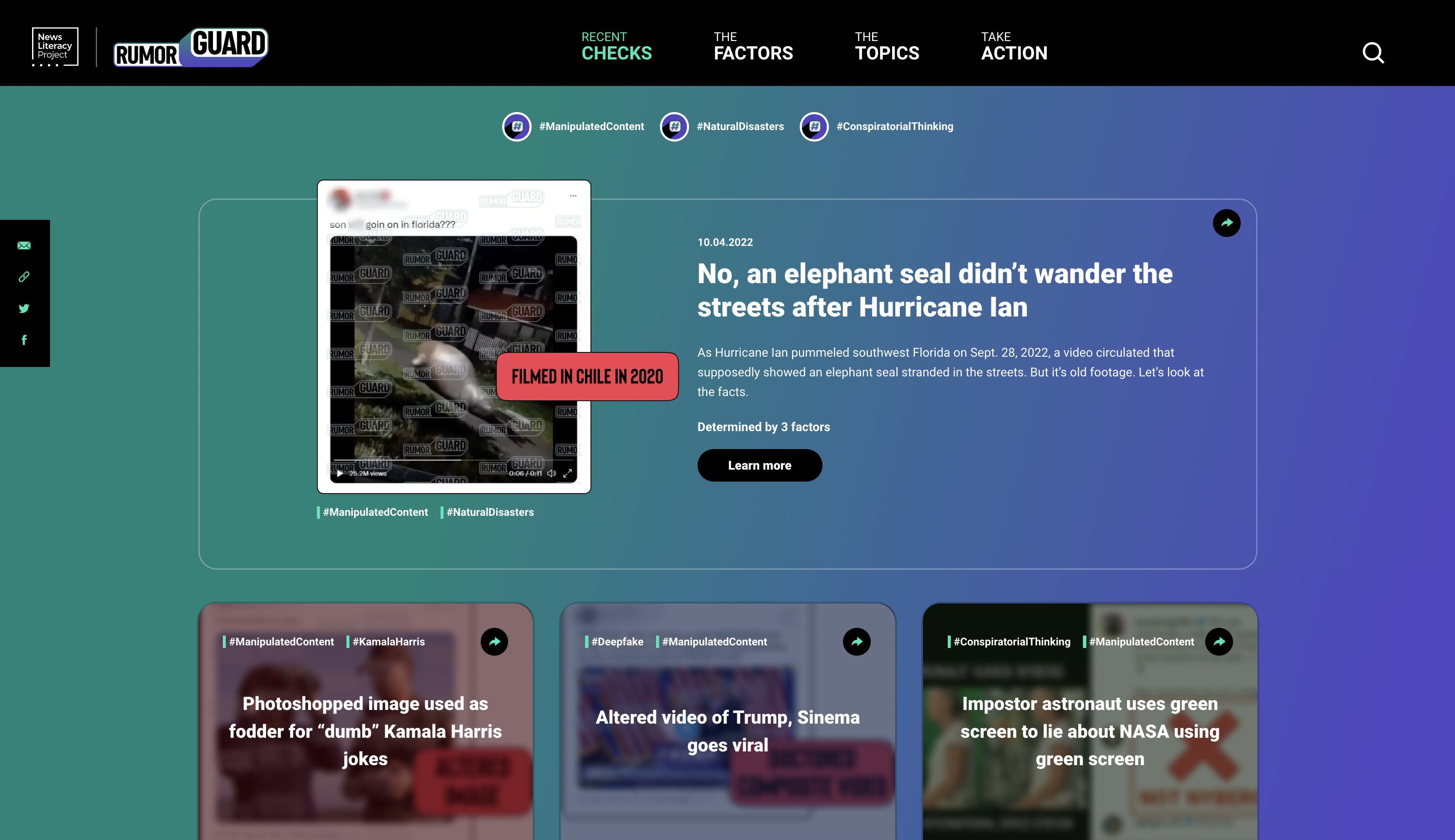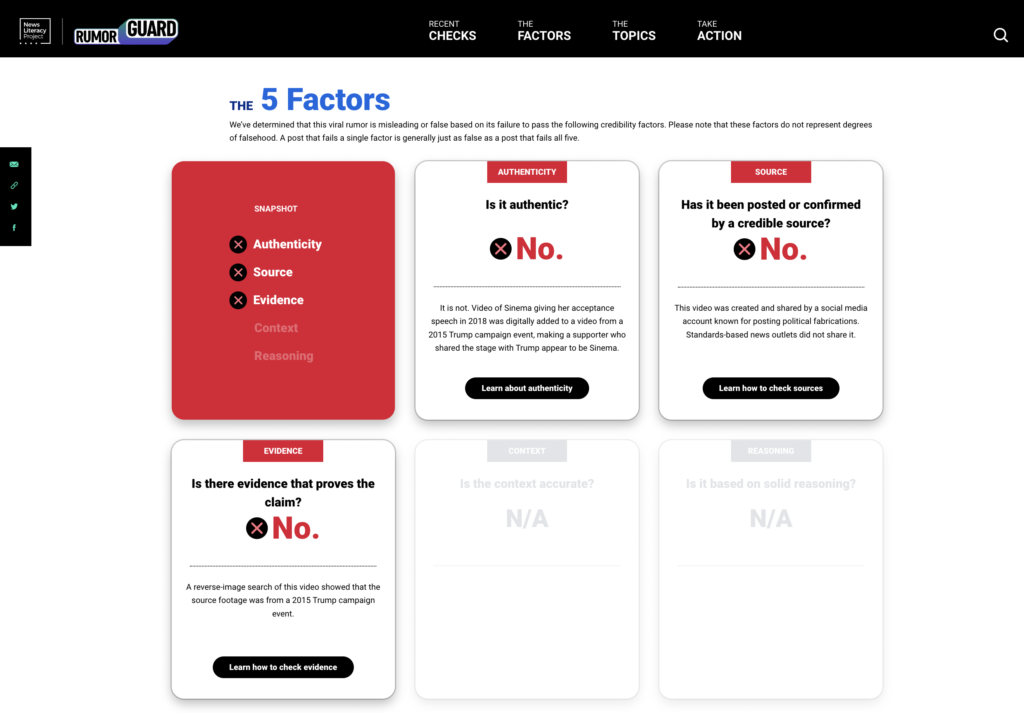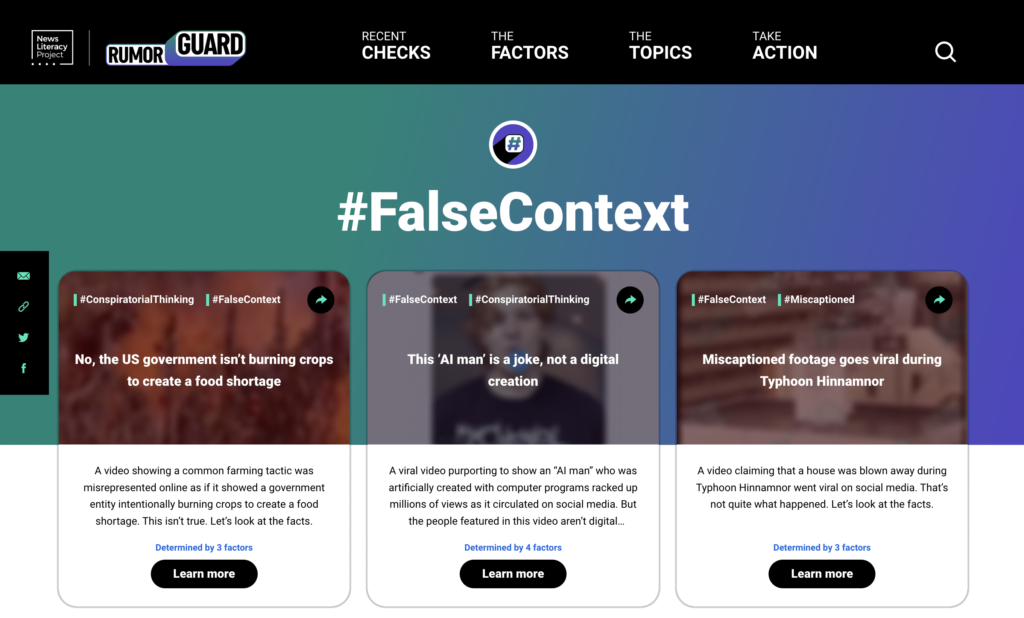Stop falsehoods in their tracks: Join the RumorGuard
The News Literacy Project is encouraging everyone to push back against misinformation with its new platform, RumorGuard, which helps you know what’s safe to share and which rumors should be stopped in their tracks. It cites topical viral rumors and lays out exactly how the public can determine that a claim doesn’t hold weight, based on five factors for credibility.

The RumorGuard homepage.
Exploring RumorGuard
The platform covers all types of misinformation and categorizes it by topic, from manipulated content or engagement bait to pressing issues like climate change and politics.
NLP also built RumorGuard as the foundation for a common future founded on facts. The platform goes beyond traditional fact-checking and source verification by using debunked hoaxes, memes and other misinformation as the starting point for learning news literacy skills.
The five factors
Each RumorGuard post takes readers through the facts behind a specific viral rumor, then breaks down the five factors that can be used to verify any claim:
1. Authenticity: Is it authentic?
2. Source: Has it been posted or confirmed by a credible source?
3. Evidence: Is there evidence that proves the claim?
4. Context: Is the context accurate?
5. Reasoning: Is it based on solid reasoning?

This rumor failed to pass three of the five credibility factors: Authenticity, source, and evidence.
These factors connect users with sources and opportunities for learning and strengthening news literacy skills.

Learn and practice techniques to check reasoning.
NLP also encourages everyone to join the RumorGuard and act for facts by subscribing to our weekly newsletter, which debunks viral rumors. Then, share what you’ve learned with the wider community.
All of us can become well-informed and learn the skills to stay well-informed with RumorGuard, the newest addition to NLP’s comprehensive news literacy resources.


